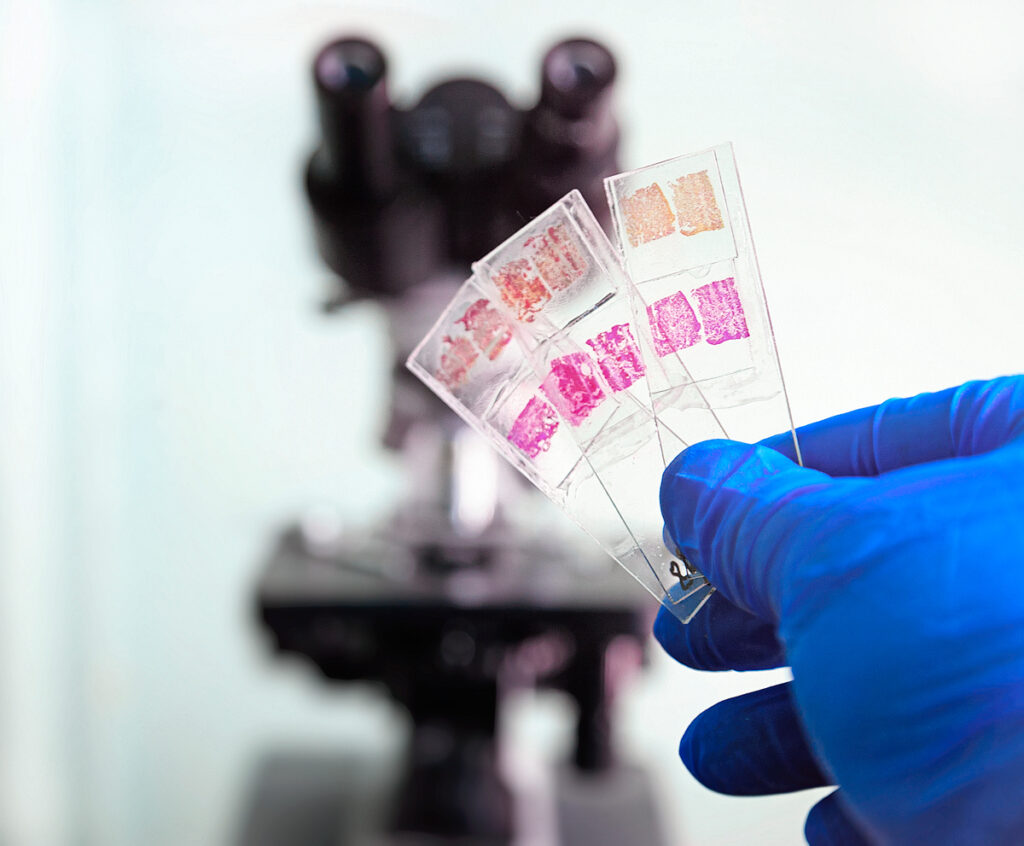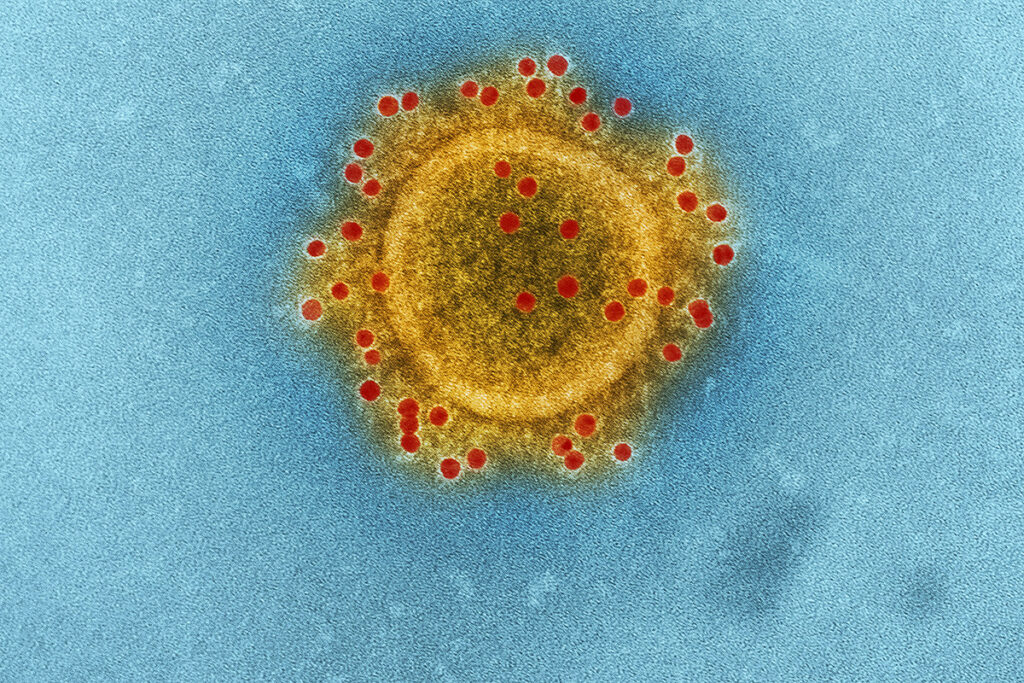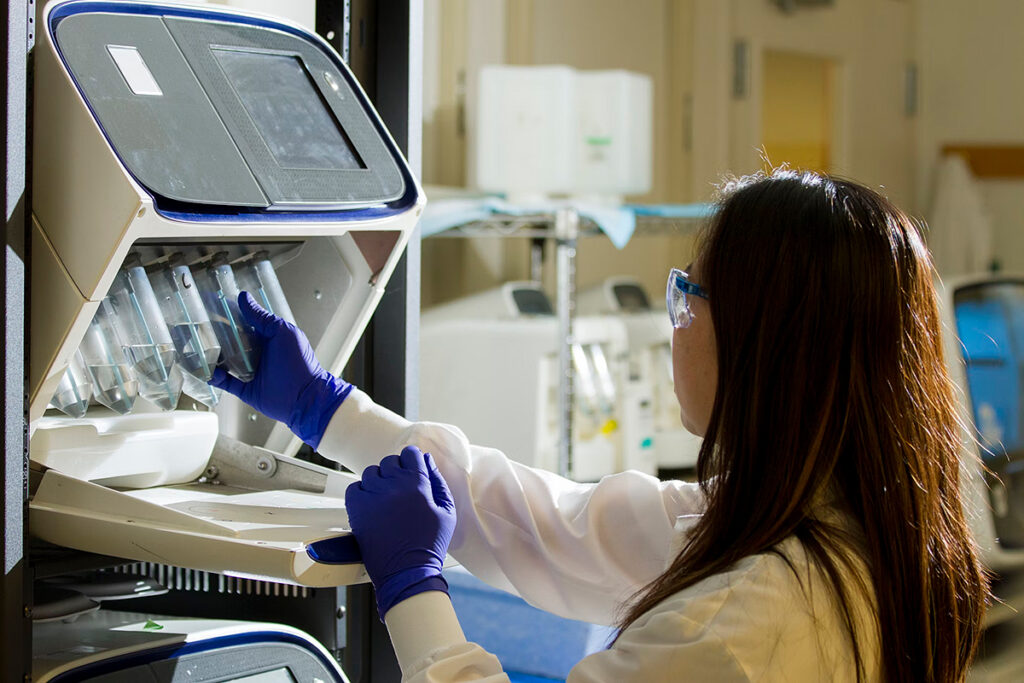Psoriasis is an autoimmune inflammatory disease that affects the skin and joints. The prevalence of psoriasis worldwide is 2-3%. The incidence is lower in Asia and Africa but higher in the Scandinavian countries.
Psoriasis can be triggered by:
- streptococcal infection;
- physical injuries: tattoos, surgical incisions;
- some medications: antidepressants, antihypertensive and anti-cytokine drugs;
- smoking and alcohol abuse;
- chronic stress.
Psoriasis is characterized by excessive division (proliferation) and abnormal differentiation of the primary cells of the epidermis – keratinocytes. Clinically, psoriasis manifests as red scaly plaques of various sizes on the knees, elbows, scalp, navel, and lumbar region.
Psoriasis is often associated with psoriatic arthritis, atherosclerosis, obesity, cardiovascular problems, diabetes, and Alzheimer’s disease. Patients with psoriasis have an increased risk of chronic intestinal inflammation and chronic kidney disease, as well as an increased prevalence of depression, anxiety, and suicidality.
How keratinocytes and innate immune cells in the skin create inflammation in psoriasis
The skin is the largest multi-layered organ of the body, consisting of several types of cells. In psoriasis, they interact intensively:
- innate immune cells: dendritic cells (DC), macrophages, neutrophils;
- cells of acquired immunity: B-and T-cells;
- resident skin cells: keratinocytes, melanocytes, and endothelial cells.
These interactions enhance and support chronic inflammation.
Antigen-presenting dendritic cells play an essential role in the initial stages of psoriasis. In psoriatic skin, antimicrobial peptides are strongly expressed: proteins LL37, S100 and beta-defensins. Peptides bind to the DNA of damaged cells. This binding leads to the activation of plasmacytoid DCS and their interferon-alpha production (IFN-α) in psoriatic plaques. IFN-α leads to maturation/activation of myeloid DCS. These activated DCS are transformed into antigen-presenting DCS for interaction with naive T cells and produce large amounts of TNF-α, IL-23, IL-12, and IL-6 cytokines. These cytokines activate cascades of inflammatory responses, promoting keratinocyte proliferation and attracting neutrophils to inflammatory sites. Keratinocytes support the inflammatory environment by producing antimicrobial peptides, secreting cytokines (IL-6, IL-1β, and TNF-α), and chemokines (CCL20, CXCL5, CXCL8, CXCL9, and CXCL10). The abundant accumulation of neutrophils in psoriatic lesions is a typical sign of psoriasis. Keratinocytes and dendritic skin cells secrete the cytokine IL-36, which activates neutrophils and increases inflammation. Interestingly, neutrophil depletion significantly eases the condition of patients who did not respond to conventional treatment. That has confirmed by research:
- Melanocyte antigen triggers autoimmunity in human psoriasis
- Therapeutic depletion of myeloid lineage leukocytes in patients with generalized pustular psoriasis indicates a major role for neutrophils in the immunopathogenesis of psoriasis
Macrophages are phagocytic and antigen-presenting cells resident in the tissue – they contribute to the inflammatory processes in psoriasis. In psoriatic lesions, an increased number of macrophages is detected. Macrophages are an essential source of the cytokine TNF-α, a key mediator of chronic inflammation. In addition, it has been shown that interferon-gamma (IFN-γ) can affect macrophages by activating the expression of the proinflammatory cytokine CXCL9. Therefore, macrophages in psoriasis have attributed the role of both target cells and active cells.
Psoriasis and interferon-gamma
IFN-γ is a type II interferon and plays a vital role in inflammatory responses and protection against viral and bacterial infections. The primary sources of IFN are gamma-T – lymphocytes CD4 + and CD8 + and NK-cells and antigen-presenting DC and B-lymphocytes. IFN-γ secretion is controlled by the cytokines IL-12 and IL-18. When antigen-presenting DCS recognize pathogenic patterns, the cytokine IL-12 and the chemokine MIP-1α, a macrophage inflammatory protein, are released. They attract NK cells, in which, in turn, IL-12 triggers the production of IFN-γ. IFN-γ enhances antigen processing and presentation and leads CD4 cells to Th1 response, stimulating inflammation.
IFN-γ can be detected in psoriatic lesions. Serum levels of IFN-γ in patients with psoriasis are higher than in healthy people and correlate with the activity of the disease. That has confirmed by research:
- Serum interferon-gamma is a psoriasis severity and prognostic marker
- Advances in Understanding the Immunological Pathways in Psoriasis
- CD8 T Cells and IFN-γ emerge as critical players for psoriasis in a novel model of mouse psoriasiform skin inflammation
IFN-γ stimulates antigen-presenting cells to produce cytokines IL-1 and IL-23, which control the response of Th17 cells. Th17 play a vital role in the development of autoimmune diseases. Interestingly, patients with a more rapid decline in serum IFN-γ during treatment experienced longer periods of remission than patients in whom IFN-γ decreased gradually.
In 2014, American scientists investigated how treatment with a neutralizing antibody against IFN-γ (HuZAF) affects psoriasis. Scientists have suggested that blocking IFN-γ with HuZAF can stop the expression of inflammatory gene products in psoriatic lesions and reduce the activity of the disease. Patients tolerated HuZAF well, but there was no effect in reducing psoriatic lesions.
Psoriasis and type I interferons: IFN-alpha and IFN-beta
In 2019, scientists showed that type I IFN (IFN-I) causes or exacerbates psoriasis while blocking the type I IFN signaling pathway effectively suppresses the development of T-cell-mediated skin inflammation and psoriasis-like inflammatory diseases.
Keratinocytes and plasmacytoid DCS produce the cytokines IL-1β and IFN-I. These cytokines activate DC, which then remain local or move to the lymph nodes and secrete TNF-α, IL-12, and IL-23 cytokines, resulting in the activation of type 1 (Th1) and type 17 (Th17) T helper cells. Activated T cells accumulate on the affected area of the skin, releasing cytokines such as IFN-γ, TNF-α, IL-22 and IL-17A. These T-cell cytokines attract other immune cells and increase keratinocyte activation, leading to autoinflammation and uncontrolled hyperproliferation of keratinocytes and the formation of psoriatic plaques.
Preventing the activation of the immune system is the key to treating psoriasis. Conventional treatments for psoriasis are associated with broad-band immunosuppression and/or toxicity to the body to be problematic with long-term use. After the withdrawal of drugs that affect dendritic and T-cells, a relapse of psoriasis often occurs. Therefore, preventing the activation of the adaptive immune system alone is not enough to treat psoriasis.
The clinical use of interferon type I for treating patients with viral infection or multiple sclerosis may cause or exacerbate psoriasis. That has confirmed by research:
- Psoriasis Associated with HCV and Exacerbated by Interferon-α
- Psoriasis induced by interferon-α. Recombinant human interferon-α has been used to treat several types of cancer, but it has worsened psoriasis or provoked its onset.
- Occurrence of Psoriatic Arthritis during Interferon Beta 1a Treatment for Multiple Sclerosis
In addition, the expression of IFN-I-stimulated genes was increased in psoriatic skin.
The IFN-I pathway is necessary for the development of T-cell-mediated skin inflammation and psoriasis-like inflammatory diseases in mice. Mice injected with neutralizing antibodies against IFN-α or IFN-β, or mice lacking the IFN-α / β IFNAR receptor, did not develop Th17-mediated skin inflammation.
In 2016, scientists showed that UV radiation relieves psoriatic inflammation caused by imiquimod (IMQ). Imiquimod is an immunomodulator that triggers the interferon-alpha response. UV radiation suppresses the interferon type I receptor IFNAR1 in keratinocytes, so the expression of inflammatory cytokines and chemokines is reduced. The severity of psoriatic inflammation caused by IMQ was significantly worsened in the skin of mice that did not have a temporary suppression of IFNAR1 after the transmission of the interferon signal. Furthermore, in mice with IFNAR1 deficiency, psoriatic inflammation was suppressed. These findings suggest that IFNAR plays a crucial role in stimulating the development of psoriasis.
In addition, mice with a deficiency of the regulatory factor interferon 2 (Irf2), which suppresses IFN-α / β signals, developed the spontaneous psoriasis-like inflammatory disease. Type I IFNs increase the expression of the IL22 receptor in keratinocytes, which leads to an increase in the sensitivity of keratinocytes to IL22 and hyperproliferation of keratinocytes.
Another 2016 study showed that IFN-β produced by activated human or mouse keratinocytes could directly promote dendritic cell maturation and subsequent T cell proliferation in vitro. All these data confirm that IFN-I plays a crucial role in skin inflammation during psoriasis.
Sources
- Current Developments in the Immunology of Psoriasis
- Humanized anti–IFN-γ (HuZAF) in the treatment of psoriasis
- Type1 Interferons Potential Initiating Factors Linking Skin Wounds With Psoriasis Pathogenesis
- Therapeutic elimination of the type 1 interferon receptor for treating psoriatic skin inflammation



